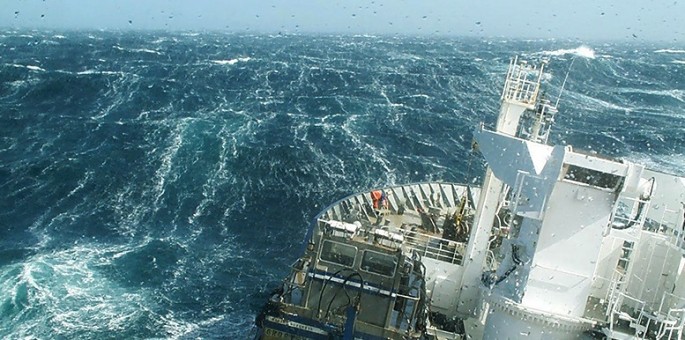A new study determined that Antarctica's Southern Ocean is apparently soaking up more greenhouse gases from the atmosphere. more than ever before during the recent years. This process is now helping alleviate climate change, researchers say.
New findings show that the natural absorbing powers of the Southern Ocean have doubled to 1.2 billion tons from 2011 which can absorb all of Europe's yearly man made greenhouse emissions, also comparable to absorption levels from ten years ago.
According to author of the study, Nicolas Gruber from the ETH Zurich, this is considered to be good news at the moment, to slow the effects of man made global warming. He adds that it was also unclear however how long will this higher rate of absorption will continue in the Southern Ocean, which is also the strongest ocean region to soak up carbon.
He also adds that the Southern Ocean is much more unpredictable than previously thought, after his team had analyzed 2.6 million measurements from ships within the last 30 years.
These shifts are apparently caused by wind and temperature patterns that are all linking to high pressure systems in the atmosphere that are occurring over the Atlantic region of the Southern Ocean and low pressure found in the Pacific region.
Scientists say that this process works when carbon dioxide is soaked from the air and then released by the Southern Ocean similar to a giant lung per year but this comes with a net uptake. The uptake of carbon dioxide by the Southern Ocean apparently stalled since the 1980s according to prior studies, making these new findings surprising.
This stalling also raised numerous fears that the ocean has already reached a saturation point were it can no longer absorb any greenhouse emissions, leaving more in the atmosphere, leading to global warming, heat waves and extreme storms and droughts, says a U.N. panel of experts.
According to Sara Mikaloff-Fletcher from the National Institute of Water and Atmospheric Research in New Zealand, since 1870, oceans already absorbed more than a quarter of carbon dioxide from burning fossil fuels, in which the Southern Ocean has already accounted for 40 percent of the uptake.
Side effects from these higher levels of absorption of carbon dioxide in the oceans can lead to carbonic acid that can be harmful to marine life and ecosystems in the long run. This new study is published in the journal, Science.



























